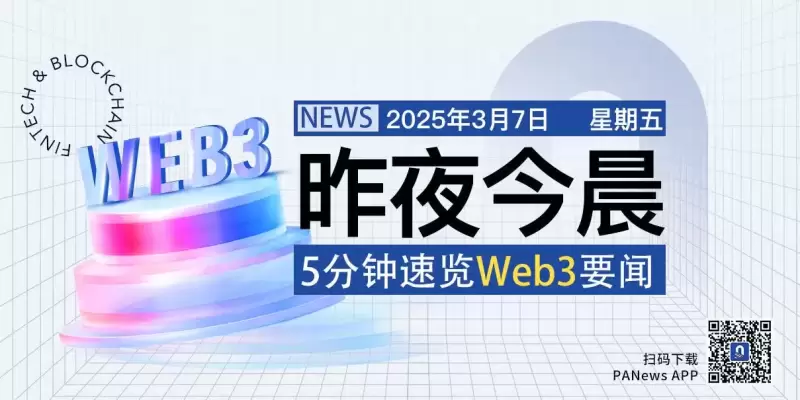 |
|
 |
|
 |
|
 |
|
 |
|
 |
|
 |
|
 |
|
 |
|
 |
|
 |
|
 |
|
 |
|
 |
|
 |
|

As Donald Trump edges closer to reclaiming the presidency, the world is finally waking up to bitcoin’s legitimate (and even central) role in the future digital economy.
The broader ‘crypto’ world, however, remains mired in skepticism for many. Gary Gensler – the soon-to-exit chairman of the Securities and Exchange Commission (SEC) – is no bitcoin fan, but still believes the distinction between BTC and “the rest” is appropriate.
“The public knows a lot about bitcoin… and then there’s everything else,” he said in a recent interview with Bloomberg. “I’ve never seen a field that’s so much wrapped up in sentiment, and not so much about fundamentals. These ten thousand to fifteen thousand projects, many of them will not survive.”
While Gensler's assessment has merit, the idea that crypto is merely a speculative playground with no fundamental value is both neglectful and outdated. There are plentiful reasons for bitcoin and tokens beyond it to exist alongside each other and carry lasting value.
The public deserves to know the nature of such assets. Here are just a few of them:
Bitcoin: Digital Gold
Launched in 2009, bitcoin introduced the world to blockchain technology and created the first truly digital, decentralized monetary system.
With its fixed supply of 21 million coins and robust security through proof-of-work mining, Bitcoin has established itself as "digital gold" – a permanent, predictable store of value and hedge against inflation.
This remains Bitcoin's primary use case, as institutional investors and even nations are now adding it to their balance sheets.
With President-elect Donald Trump promising to establish a “strategic national bitcoin stockpile” to help tackle the nation’s debt, the United States could soon be among them.
Stablecoins: Digital Dollars
Stablecoins like USDC and USDT maintain a 1:1 peg with the U.S. dollar, combining the stability of fiat currency with the efficiency of blockchain technology. These have become highly popular for International remittances, crypto trading, cross-border business transactions, and DeFi (decentralized finance) applications.
Stablecoins see some of their strongest adoption in developing nations like Nigeria, where access to traditional banking is limited, yet demand for USD is high to escape the devaluation of citizens’ local currency. A report from Castle Island Ventures last year found that over 77% of Nigerians held more than 10% of their assets in stablecoins.
Digital Securities
Security tokens represent ownership in real-world assets, from real estate to company shares. These are digital versions of traditional securities, regulated under existing securities laws but benefiting from blockchain's efficiency and transparency.
One example includes BlackRock’s first tokenized fund launched last year, giving institutional investors on-chain access to US dollar yields.
Utility Tokens
Many cryptocurrencies function as utility tokens, which serve specific purposes within their respective ecosystems.
Gas tokens, for example, are used to pay for computation and transaction processing on blockchain networks. Ethereum's ETH is the most well-known example, required for all transactions on the Ethereum network.
Such tokens often also double function as staking tokens. Examples include ADA (Cardano) and SOL (Solana), where token holders can "stake" their assets to validate transactions and maintain network consensus.
Meanwhile, “governance tokens” give holders voting power over a given blockchain protocol, with its community of holders collectively known as “decentralized autonomous organizations.” Uniswap, a the world’s largest decentralized exchange, uses UNI as its governance token.
Memecoins: The Speculative Side
In an online investment community where members so often call themselves “degens,” it would be disingenuous not to acknowledge how speculative the crypto market is.
Memecoins like Dogecoin (DOGE) and Shiba Inu (SHIB), while starting as jokes, have attracted significant investment and created entire communities. While these may seem frivolous, they've demonstrated the power of social coordination and community-driven value creation in the digital age. For many, they are a fun and community-driven form of gambling.
To the surprise of many, DOGE is one of the only assets in crypto to keep pace with Bitcoin’s performance over multiple four-year crypto market cycles.
The Revolution Beyond Tokens
Focusing solely on cryptocurrencies as tokens misses the bigger picture. Their underlying blockchain technology represents a fundamental shift in how we can structure digital ownership, whether it relates to financial assets, data, or your identity.
The real innovation is the ability to maintain a single, shared source of truth across a distributed network without requiring trust in any central authority. This has implications for supply chain management, healthcare records, intellectual property rights, voting systems, and much more.
Many of today's cryptocurrencies will likely fade away, just as many early internet companies didn't survive the dot-com bubble. However, digital asses and their core use cases – from digital store of value to programmable money to decentralized computing
免責聲明:info@kdj.com
所提供的資訊並非交易建議。 kDJ.com對任何基於本文提供的資訊進行的投資不承擔任何責任。加密貨幣波動性較大,建議您充分研究後謹慎投資!
如果您認為本網站使用的內容侵犯了您的版權,請立即聯絡我們(info@kdj.com),我們將及時刪除。
-

- BTC收回85,000美元,因為看漲公司去購物
- 2025-04-03 16:10:12
- 領先的數字資產繼續上升,因為Stablecoin龐然大物Tether等公司在書籍上透露了數十億美元的BTC。
-

- Gamefi:遊戲和金融的動態融合
- 2025-04-03 16:10:12
- Gamefi是遊戲和金融的動態融合,利用區塊鏈技術改變我們的遊戲方式和投資方式。
-

- 南非的稅收服務敦促加密資產市場參與者註冊
- 2025-04-03 16:05:12
- 南非的稅務局敦促參與加密資產交易的人在當局登記,因為它試圖控制稅收違約者。
-

- 哈薩克斯坦,阿聯酋與CBDC開發合作
- 2025-04-03 16:05:12
- 哈薩克斯坦金融部門的代表團最近訪問了阿拉伯聯合酋長國(UAE),以加強數字資產和區塊鏈技術方面的協作。
-

-

-

-

-





























































